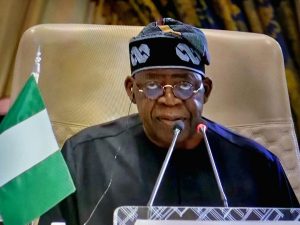China’s Xi Jinping delivers thinly-veiled swipe at US

Xi was speaking at an event Friday marking the anniversary of Chinese troops crossing the border into North Korea in October 1950, a conflict that Beijing refers to as “the War to Resist US Aggression and Aid Korea.”The Chinese leader spoke at the same time as the final US presidential debate was taking place in Nashville, Tennessee between President Donald Trump and his Democratic challenger, former Vice President Joe Biden. During the debate, the two opponents clashed over who would be better positioned to handle China, with both men promising to stand up to a resurgent Beijing. In his speech Friday, Xi highlighted alleged acts of US aggression towards China during the Korean War and emphasized the claim that an outgunned Chinese military managed to defeat its “legendary” American counterpart. Xi, who is also commander-in-chief of China’s People’s Liberation Army, warned that while Beijing wanted peace it would not back down from a fight.”The Chinese people mean that we should speak to the invaders in a language they understand,” Xi said.In China, the war has long been hailed as a great victory, despite North Korea failing to make any gains after its initial invasion of the South was rebuffed. Pyongyang would likely have been defeated without Beijing’s assistance.Ahead of Xi’s speech, held before a packed audience at the Great Hall of the People in central Beijing, the room rose to applaud a group of Chinese Korean War veterans who were in attendance, and held a moment of silence in tribute to the nearly 200,000 Chinese soldiers killed in the conflict.The event was the latest in a series of high-profile government commemorations and newspaper articles marking the anniversary and China’s claimed victory over the US.In a lengthy front-page commentary published Wednesday in the People’s Liberation Army Daily, the official newspaper of China’s military, the author hailed the “glorious victory” that “left the Americans with the deepest impression that what Chinese people say counts,” and to respect “China’s red lines.”Xi’s speech and the surrounding propaganda blitz stand in contrast to the more understated events that were held 10 years ago on the 60th anniversary of China’s entry to the Korean War.In 2010, the commemorations culminated in a symposium held in Beijing attended by the nation’s leaders including then Vice President Xi, who delivered a keynote speech. While touching on many of the same points about the war’s historical significance, Xi’s remarks back then noticeably lacked the not-so-subtle rebukes and warnings aimed at Washington found in Friday’s speech.Tensions between the two world powers have risen across a range of fronts in recent years, including the status of Taiwan, allegations of widespread human rights abuses against Muslim minorities in the western region of Xinjiang and disagreements over technology and trade.In an op-ed published Wednesday, US national security adviser Robert O’Brien said that Xi’s “ambitions for control are not limited to the people of China,” while Biden has vowed to continue pursuing closer ties with Taiwan in an op-ed for America’s largest Chinese-language newspaper, World Journal.”Seeking hegemony… will not work”Chinese troops, redesignated as the People’s Volunteer Army, crossed into North Korea in October 1950 to assist their fellow Communist regime, which was being rapidly pushed back toward the border with China by the combined forces of South Korea and the United Nations.During his speech Friday, Xi painted the US as an imperialist aggressor with far superior technologies and weaponry, that was nevertheless repelled by the combined forces of China and North Korea. “After painstaking efforts in the war, the Chinese and Korean armies finally defeated the opponents and also broke the legendary US Army, who were supposed to be invincible,” Xi said.The Chinese leader said that their victory in the Korean War was a message to the “suppressed nations and peoples in the world.” “Any country or any army, no matter how powerful they used to be, standing against the trend of the international community and acting perversely … will surely backfire,” he said.While Xi never mentioned the US outside of his comments specifically on events during the Korean War, he ended his speech with a warning to states who endorsed “unilateralism, protectionism and extreme egoism.””No blackmailing, blocking or extreme pressuring will work. Acting in one’s own way and serving one’s own interests will not work. Seeking hegemony and bullying others will not work and will lead the world to nowhere but a dead end,” he said.CNN’s James Griffiths contributed to this article.







